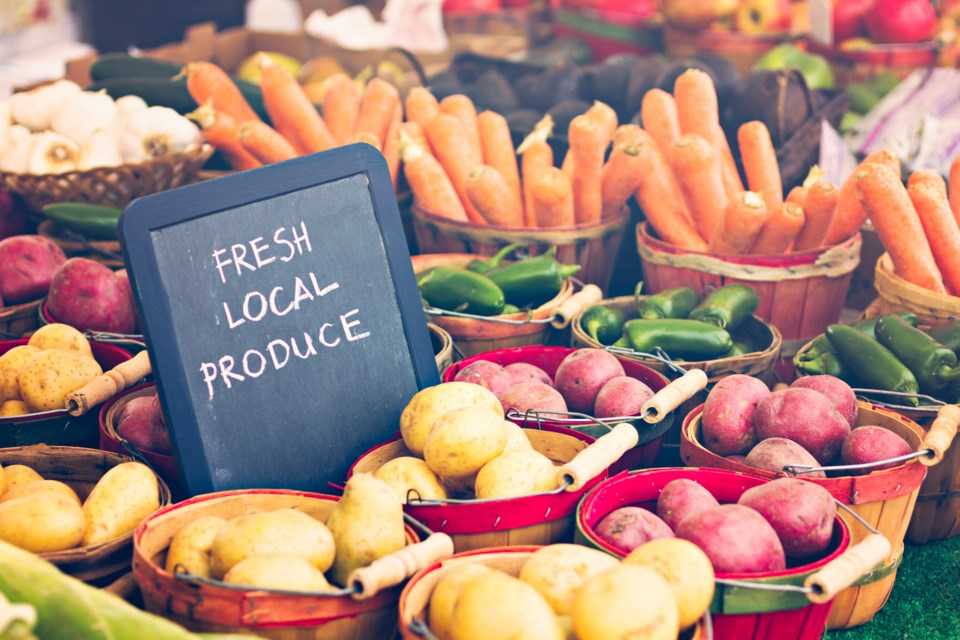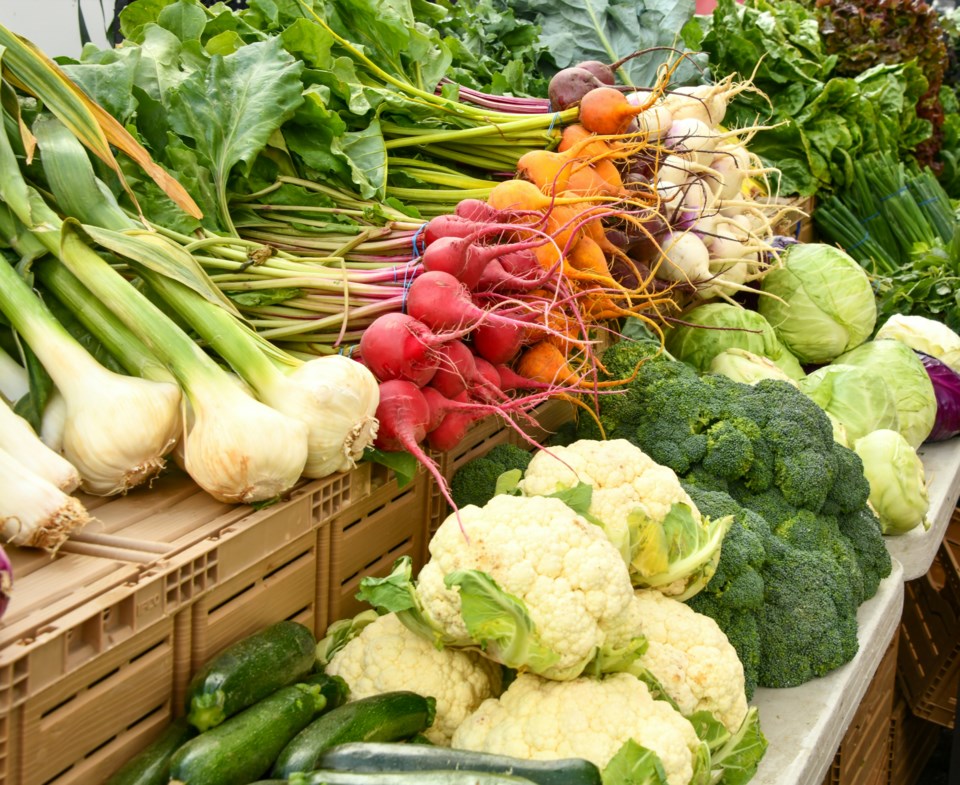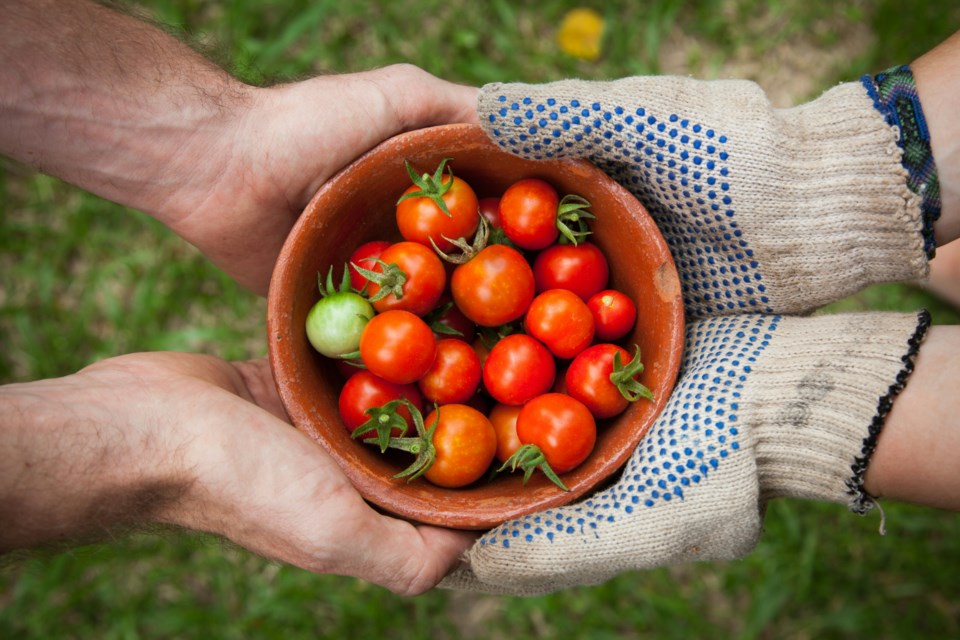Eating well on a budget is a common concern for many Ontarians, especially with food inflation in the last few years and the rising costs of every living expense.
However, with a few key strategies, eating a nutritious diet without overspending is possible. From meal planning to shopping smart, here are ten practical tips tailored for Ontario-based readers to help you stretch your grocery budget.

1. Shop Farmer's Markets
It’s almost time for farmers’ markets to open across Ontario, and using this fantastic resource is a great way to eat nutritious foods at peak freshness and save money! Farmer’s market foods are often more affordable because they are grown locally and don’t have to travel as far. Markets typically run from May through October. Find one opening near you soon.
2. Shop budget-friendly grocery lines
Many major grocers in Ontario offer their own cost-effective product lines. For example, No Frills has its "No Name" brand known for affordable prices, while Loblaws offers the "President's Choice" line with a range of budget-friendly options. Wal-Mart and Canadian Superstore are other stores that are well known for providing the best food prices in Canada.
3. Shop in Bulk
When you shop in bulk, you're not just stocking up on a lot of items at once—you're saving money in the long run. Buying items like grains and pantry staples in larger quantities means cutting costs per unit and reducing extra packaging waste. Think of it as stocking up your kitchen with essentials at a discount, making meal planning easier, your wallet happier, and ensuring you're always prepared. Bulk Barn and Costco are popular choices for shopping in bulk in Ontario, offering a wide selection of pantry staples, snacks, and specialty items at affordable prices.

4. Eat with the Seasons
Spring is upon us, so it’s time to shift gears and eat what’s fresh in Ontario to save money on produce. In spring, Ontario's farmers' markets are bursting with fresh produce such as asparagus, radishes, green peas, salad greens, cucumbers, rhubarb, and strawberries. These seasonal foods are not only cost-effective but also packed with nutrients.
5. Start Meal Planning
It might not be at the top of everyone’s list of favourite things to do, but planning your meals ahead of time, making an organized shopping list, taking stock of what you already have at home (and what needs to be used up) can help you make the most of your grocery budget by reducing food waste and avoiding last-minute, expensive purchases.
6. Monitor Sales
Keep an eye out for coupons and sales at Ontario grocery stores to maximize your savings on nutritious items. Most grocers release a weekly flyer with rotating discounts that will not only save you money but will keep your weekly meals fresh and exciting and prevent food boredom—win, win!

7. Eat More Plant-Based Foods
Incorporating plant-based proteins like lentils and tofu into your meals can be a cost-effective alternative to meat while still providing essential nutrients. This doesn’t mean you need to go entirely plant-based, but leaning into a plant-forward diet a few days a week can shave a chunk of change off your weekly food budget.
8. Buy Frozen Fruits and Vegetables
If you’re under the impression that frozen foods are less nutritious, we’re here to tell you that’s not true! Frozen produce is just as nutritious as fresh and thanks to the staying power of your freezer, it will likely result in less food waste if you don’t get to them in time as is sometimes the case with fresh produce. Stocking up on frozen fruits and vegetables is a budget-friendly way to ensure you have nutritious options available year-round.
9. Prepare DIY Snacks for the Week
Making your own snacks, such as trail mix, granola bars, muffins, and power balls, is not only more affordable but also allows you to control the ingredients for a healthier option. Try these kid-friendly snacks that you can make on Sunday for a week of easy grab-and-go options.

10. Utilize Community Resources
Take advantage of community resources like food banks and community gardens in Ontario to access affordable, nutritious foods and support your local community. Here are a few resources to check out:
- Sustain Ontario Community Garden Network
- Daily Bread Food Bank
- Food Banks Canada
- Toronto Urban Growers (with nationwide resources)
About the Author

Alicia is a journalist and editor in digital and print media specializing in health, nutrition, fitness, and wellness. She was previously the Editorial Director of Clean Eating and Vegetarian Times. Her work has also appeared in Hone Health The Edge, Yoga Journal, Women’s Running, and Oxygen, among others. In addition to being a content creator, she's an ISSA-certified nutritionist, certified personal trainer, and fitness studio owner in Toronto. Alicia loves spreading the word about helpful, science-backed health information, and she can be contacted via her website at aliciamtyler.com.




